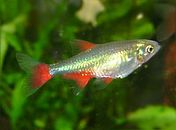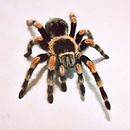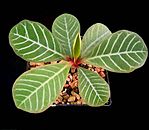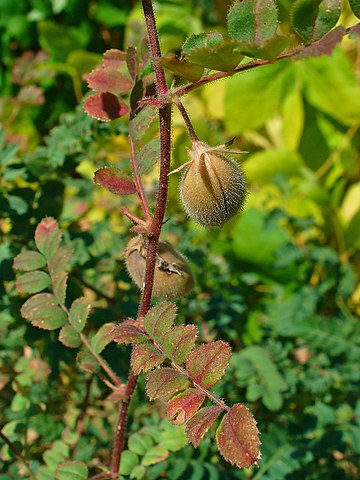Main Page
|
Welcome to The free species directory that anyone can edit. It covers Animalia, Plantae, Fungi, Bacteria, Archaea, Protista and all other forms of life. So far we have 574,400 articles Wikispecies is free, because life is in the public domain! You can also check us out on Twitter: @Wikispecies We also have an IRC Channel #wikispeciesconnect |
Taxon Navigation
|

|

|

|

|
| Haloquadratum walsbyi | Sitta europaea caesia | Boletus calopus | ♂Aphyocharax anisitsi |

|

|

|
|
| ♀Brachypelma smithi | Hippopotamus amphibius | Euphorbia leuconeura | Sarcophaga sp. with Tipulidae |
Explore Wikispecies
Collaboration with ZooKeys A collaboration between Wikispecies and ZooKeys has been announced. PhytoKeys also joined the collaboration in November 2010. Images of species from ZooKeys and PhytoKeys will be uploaded to Wikimedia Commons and used in Wikispecies.
Distinguished authorFrancesco Redi Francesco Redi was an Italian entomologist, parasitologist and toxicologist, sometimes referred to as the "founder of experimental biology" and the "father of modern parasitology". Having a doctoral degree and in both medicine and philosophy from the University of Pisa at the age of 21, he worked in various cities of Italy. Redi is best known for his series of experiments, published in 1668 as Esperienze Intorno alla Generazione degli Insetti ("Experiments on the Generation of Insects"), which is regarded as his masterpiece and a milestone in the history of modern science. The book is one of the first steps in refuting "spontaneous generation", a theory also known as "Aristotelian abiogenesis". At the time, prevailing theory was that maggots arose spontaneously from rotting meat, which Redi was able to disprove. In an experiment, He used samples of rotting meat that were either fully exposed to the air, partially exposed to the air, or not exposed to air at all. Redi showed that both fully and partially exposed rotting meat developed fly maggots, whereas rotting meat that was not exposed to air did not develop maggots. This discovery completely changed the way people viewed the decomposition of organisms and prompted further investigations into insect life cycles and into entomology in general. It is also an early example of forensic entomology. In Esperienze Intorno alla Generazione degli Insetti Redi was the first to describe ectoparasites, such as lice (Phthiraptera), fleas (Siphonaptera), and some mites (Acari). His next treatise in 1684, titled Osservazioni intorno agli animali viventi che si trovano negli animali viventi ("Observations on Living Animals, that are in Living Animals") recorded the descriptions and the illustrations of more than 100 parasites. In it he also differentiates the earthworm (generally regarded as a helminth) and Ascaris lumbricoides, the human roundworm. An important innovation from the book is his experiments in chemotherapy in which he employed what is now called "scientific control", the basis of experimental design in modern biological research. Perhaps, his most significant observation was that parasites produce eggs and develop from them, which contradicted the prevailing opinion that they are produced spontaneously. Altogether he is known to have described some 180 species of parasites. See also: Distinguished authors of previous months. |
Species of the monthChickpeaSome facts on this legume: Height: Between 20 and 60 cm. Flowers: White with blue, violet or pink veins. Peas: Yellow-brown; borne one or two per pod. Types: Desi, which has small, dark seeds with a rough coat and Kabuli, which has lighter colored, larger seeds with a smoother coat. World annual production: 9,000,000 tonnes. First described: By the Swedish naturalist Linnaeus in 1753.
See also: Species of previous months |
Wikispecies in other languagesالعربية · ئۇيغۇرچە · Alemannisch · Aragonés · অসমীয়া · Asturianu · Azərbaycanca · Bahasa Indonesia · Bahasa Melayu · بلوچی · Български · বাংলা · Беларуская · Boarisch · Bosanski · Brezhoneg · Català · Čeština · Cymraeg · Dansk · Deutsch · Eesti · Ελληνικά · English · Ænglisc · Español · Esperanto · Euskara · فارسی · Føroyskt · Français · Galego · ქართული · 廣東話 · 한국어 · Հայերեն · Hrvatski · Interlingua · Íslenska · Italiano · עברית · हिन्दी · қазақша · Кыргызча · Magyar · Mirandés · Македонски · मराठी · молдовеняскэ · Nederlands · नेपाली · 日本語 · Nordfriisk · Norsk bokmål · Нохчийн · ଓଡ଼ିଆ · Occitan · Polski · Português · Ripoarisch/Kölsch · Română · Runa Simi · Русский · Scots · Shqip · සිංහල · Sicilianu · Simple English · Slovenčina · Slovenščina · Српски/Srpski · Sunda · Suomi · Svenska · Tagalog · Тоҷикӣ · தமிழ் · ไทย · Tiếng Việt · Türkçe · Українська · Veneto · Volapük · ייִדיש · Zazaki · 简体中文 · 正體中文 |
|
Wikispecies is run by the non-profit Wikimedia Foundation, which operates several other multilingual and free-content projects:
|


